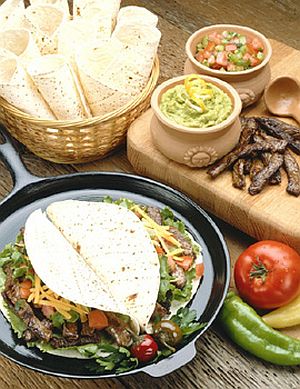Mexico City, Mexico - Mexico can deal with the high levels of diabetes and obesity among its people by returning to its traditional cuisine, experts say.
"The rupture of the system and the traditional Mexican diet is at the root of these health problems," Mexican Cultural Gastronomy Conservatory president Gloria Lopez Morales said. "Diabetes and obesity are nutritional problems."
The traditional diet in Mexico, which ranks No. 1 in the world in childhood obesity and No. 2 in adult obesity, was based on a balanced mix of foods rich in nutrients, vitamins, protein, and minerals, Lopez Morales said. "Mexico's traditional diet was not fully vegetarian, but it was based on foods grown in the countryside."
About 70 percent of Mexico's people are obese or overweight, the United Nations said in a recent report.
Lopez said she supported taxing soft drinks, a measure included by President Enrique Peņa Nieto in his tax reform package.
Mexican World Gastronomy Forum vice president Eduardo Wichtendahl, for his part, said traditional cooking should be marketed differently.
"Gastronomy today should be placed (in the market) not so much as a subproduct of tourism but as a product in and of itself," Wichtendahl said.
The Mexican World Gastronomy Forum will take place in the Pacific resort city of Acapulco this week, October 9th-12th.
"There is great ignorance about Mexican food, with many people confusing it with 'Tex-Mex' food, a regional cuisine created in the southwestern US, or thinking it is limited to just tortillas, chilis, and tacos," said Wichtendahl. "The traditional Mexican diet eaten by Indian peoples was based on corn, beans and chilis, and was loaded with vitamin C."
"The problem in Mexico is excessive consumption of soft drinks," Wichtendahl said, adding that the country's soft drink consumption averages 43.3 gallons per capita annually.


